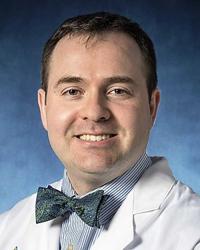Research Lab Results
-
Bert Vogelstein Laboratory
The Bert Vogelstein Laboratory seeks to develop new approaches to the prevention or treatment of cancers through a better understanding of the genes and pathways underlying their pathogenesis. Our major focus is on cancers of the colon and rectum. We have shown that each colon neoplasm arises from a clonal expansion of one transformed cell. This expansion gives rise to a small benign colon tumor (called a polyp or adenoma). This clonal expansion and subsequent growth of the tumors appears to be caused by mutations in oncogenes and tumor suppressor genes, and the whole process is accelerated by defects in genes required for maintaining genetic instability. Mutations in four or five such genes are required for a malignant tumor to form, while fewer mutations suffice for benign tumorigenesis. As the mutations accumulate, the tumors become progressively more dangerous. Current studies are aimed at the further characterization of the mechanisms through which these genes act, the identification of other genes that play a role in this tumor type, and the application of this knowledge to patient management. -
Devreotes Laboratory
The Devreotes Laboratory is engaged in genetic analysis of chemotaxis in eukaryotic cells. Our long-term goal is a complete description of the network controlling chemotactic behavior. We are analyzing combinations of deficiencies to understand interactions among network components and carrying out additional genetic screens to identify new pathways involved in chemotaxis. A comprehensive understanding of this fascinating process should lead to control of pathological conditions such as inflammation and cancer metastasis. -
Dmitri Artemov Lab
The Artemov lab is within the Division of Cancer Imaging Research in the Department of Radiology and Radiological Science. The lab focuses on 1) Use of advanced dynamic contrast enhanced-MRI and activated dual-contrast MRI to perform image-guided combination therapy of triple negative breast cancer and to assess therapeutic response. 2) Development of noninvasive MR markers of cell viability based on a dual-contrast technique that enables simultaneous tracking and monitoring of viability of transplanted stems cells in vivo. 3) Development of Tc-99m and Ga-68 angiogenic SPECT/PET tracers to image expression of VEGF receptors that are involved in tumor angiogenesis and can be important therapeutic targets. 4) Development of the concept of “click therapy” that combines advantages of multi-component targeting, bio-orthogonal conjugation and image guidance and preclinical validation in breast and prostate cancer models.
-
Douglas Ball Lab
The Douglas Ball Lab conducts clinical trials and pre-clinical laboratory studies of thyroid cancer. Our clinical trials, performed in collaboration with research staff in the upper aero-digestive group in the Sidney Kimmel Comprehensive Cancer Center, have included protocols for advanced radioiodine-refractory differentiated thyroid cancer and medullary thyroid cancer. Our pre-clinical research, conducted with Dr. Nelkin, Dr. Agrawal and other Kimmel Cancer Center researchers, includes pathogenesis and mechanisms of treatment resistance in medullary thyroid cancer, and pathogenesis and immune-directed therapy of anaplastic thyroid cancer.
-
Drew Pardoll Lab
The Pardoll Lab focuses on the regulation of antigen-specific T cell responses and studies approaches to modify these responses for immunotherapy. Pardoll has a particular interest in cancer immunology and his lab’s studies on basic immunologic mechanisms have led to the development and design of a number of cancer vaccines and discovery of key checkpoint ligands and receptors, such as PD-L2, LAG-3 and neuritin, many of which are being targeted clinically. Our primary pursuits are discovering and elucidating new molecules that regulate immune responses, investigating the biology of regulatory T cells, and better understanding the specific biochemical signatures that allow a patient’s T cells to selectively target cancer cells.
-
Drug Discovery Group
Barbara Slusher, M.A.S., Ph.D., leads a 20-member veteran drug discovery team of medicinal chemists, assay developers, pharmacologists, toxicologists and pharmacokinetic/drug metabolism experts, who identify novel drug targets arising from JHU faculty’s research and translate them into new, small molecule drug therapies. Her team collaborates extensively with faculty at the Bloomberg~Kimmel Institute for Cancer Immunotherapy and leads the BKI immunotherapy drug discovery core, aimed at developing new immune-targeting drug therapies for laboratory and clinical testing at Johns Hopkins. -
Zhu Lab
The Zhu lab is focused on characterizing the activities of large collection of proteins, building signaling networks for better understanding the mechanisms of biological processes, and identifying biomarkers in human diseases and cancers. More specifically, our group is interested in analyzing protein posttranslational modifications, and identifying important components involved in transcription networks and host-pathogen interactions on the proteomics level, and biomarkers in human IBD diseases.
-
Eugene Shenderov Laboratory
The Shenderov Lab focuses on the elucidation of the mechanisms of immune response and resistance to immunotherapy in Prostate Cancer. This has led to clinical and basic research investigating the presumptive checkpoint inhibitor B7-H3. In pursuit of understanding biomarkers or resistance and response, and regulatory molecules of immune response, we utilize artificial intelligence, immunogenomics, and spatial proteomics and transcriptomics in the laboratory and at the bedside using clinical trial correlative samples. -
Elham Afghani Lab
The Elham Afghani Lab performs clinical research on pancreatic auto islet transplants, pancreatic cancer, pancreatic cysts, and pancreatitis.
-
Eberhart, Rodriguez and Raabe Lab
Utilizing a combination of tissue-based, cell-based, and molecular approaches, our research goals focus on abnormal telomere biology as it relates to cancer initiation and tumor progression, with a particular interest in the Alternative Lengthening of Telomeres (ALT) phenotype. In addition, our laboratories focus on cancer biomarker discovery and validation with the ultimate aim to utilize these novel tissue-based biomarkers to improve individualized prevention, detection, and treatment strategies.


